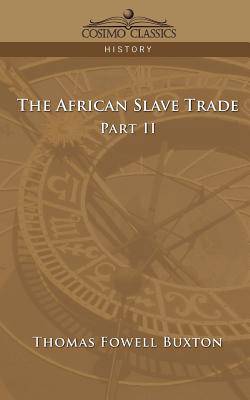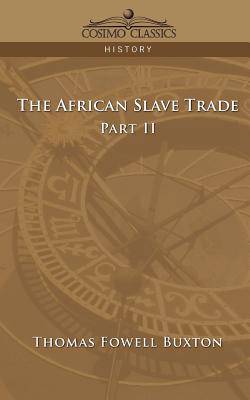
Je cadeautjes zeker op tijd in huis hebben voor de feestdagen? Kom langs in onze winkels en vind het perfecte geschenk!
- Afhalen na 1 uur in een winkel met voorraad
- Gratis thuislevering in België vanaf € 30
- Ruim aanbod met 7 miljoen producten
Je cadeautjes zeker op tijd in huis hebben voor de feestdagen? Kom langs in onze winkels en vind het perfecte geschenk!
- Afhalen na 1 uur in een winkel met voorraad
- Gratis thuislevering in België vanaf € 30
- Ruim aanbod met 7 miljoen producten
Zoeken
Omschrijving
One of the most prominent abolitionists of his era, Sir Thomas Fowell Buxton campaigned ceaselessly for the end of what he termed "a commerce which [has] produced more crime and misery, than perhaps any other single course of guilt and iniquity." In his deeply influential treatise The African Slave Trade and Its Remedy, published in 1840, he set out to demonstrate the cultural and economic folly of the slave trade-for both the African nations and those who did business with them-and to enlist the support of the general public and the British government for diplomatic efforts aimed at ending slavery. This is Part 2 of Buxton's revolutionary work. Part 1, The African Slave Trade, is also available from Cosimo. British social reformer SIR THOMAS FOWELL BUXTON (1786-1845) was a champion of London's most impoverished citizens, fought for prison reform, and sought to end capital punishment and slavery. He served as a member of the House of Commons from 1818 to 1837, and his life and works are commemorated by a monument in Westminster Abbey.
Specificaties
Betrokkenen
- Auteur(s):
- Uitgeverij:
Inhoud
- Aantal bladzijden:
- 324
- Taal:
- Engels
Eigenschappen
- Productcode (EAN):
- 9781596051959
- Verschijningsdatum:
- 1/09/2005
- Uitvoering:
- Paperback
- Formaat:
- Trade paperback (VS)
- Afmetingen:
- 127 mm x 203 mm
- Gewicht:
- 353 g

Alleen bij Standaard Boekhandel
+ 59 punten op je klantenkaart van Standaard Boekhandel
Beoordelingen
We publiceren alleen reviews die voldoen aan de voorwaarden voor reviews. Bekijk onze voorwaarden voor reviews.









